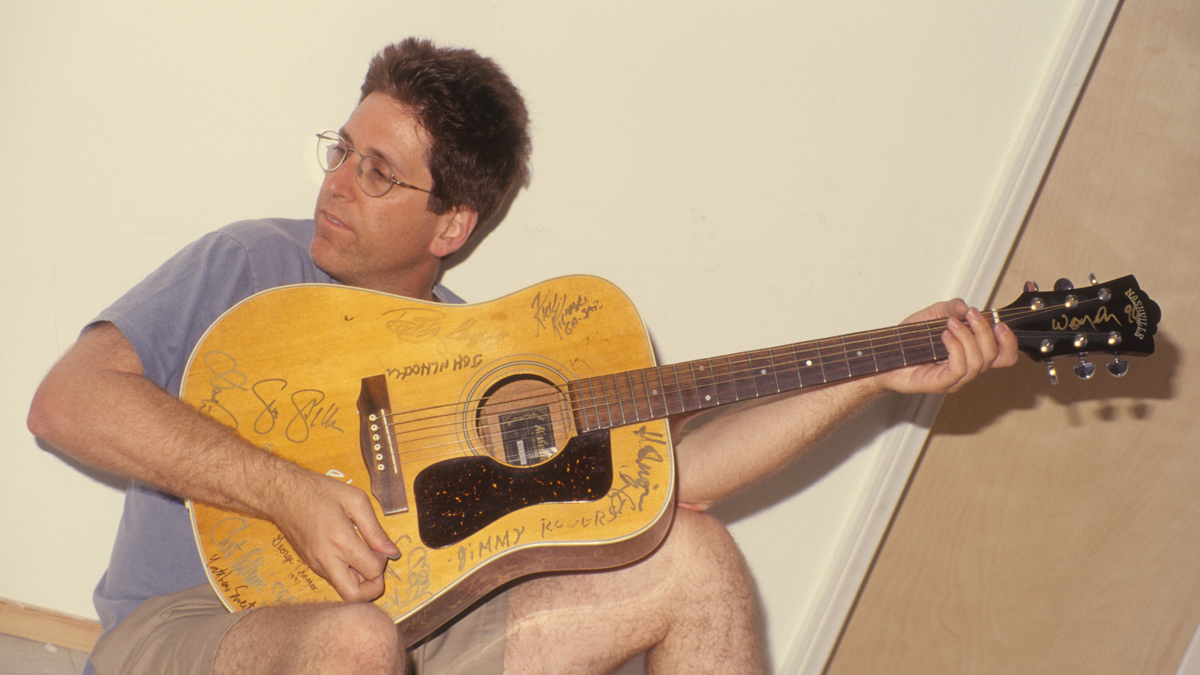Former Red Hot Chili Peppers guitarist Jack Sherman dies aged 64
RHCP pay tribute to Sherman, who played on the band’s self-titled debut and co-wrote its follow-up

Jack Sherman, who played guitar on the Red Hot Chili Peppers’ self-titled debut album, has died aged 64.
The news was broken by the band on social media, in a statement that reads, “We of the RHCP family would like to wish Jack Sherman smooth sailing into the worlds beyond, for he has passed.
“Jack played on our debut album as well as our first tour of the USA. He was a unique dude and we thank him for all times good, bad and in between. Peace on the boogie platform.”
A cause of death has yet to be announced.
Born in Miami, Florida in 1956, Sherman joined RHCP in 1983, replacing founding guitarist Hillel Slovak, who had left to focus on his other band What Is This?
Sherman ended up playing on the band’s Andy Gill-produced debut album, The Red Hot Chili Peppers, co-writing several tracks.
During the intense touring that followed, frontman Anthony Kiedis and Sherman frequently came to blows, leading to Sherman’s departure in February 1985.
Get The Pick Newsletter
All the latest guitar news, interviews, lessons, reviews, deals and more, direct to your inbox!
A post shared by Red Hot Chili Peppers (@chilipeppers)
A photo posted by on on Aug 21, 2020 at 6:31pm PDT
Nonetheless, Sherman’s musical input was felt on the debut’s follow-up, Freaky Styley, on which he holds writing credits for half its 14 tracks. His parts were ultimately recorded by Hillel Slovak, who returned to the band in early 1985.
Sherman’s backing vocals also appear on Good Time Boys and Higher Ground, the band’s cover of the Stevie Wonder classic, from 1989’s Mother’s Milk.
Following his exit from the Chili Peppers, Sherman contributed to albums from George Clinton, Bob Dylan and the Undertones’ Feargal Sharkey.
Despite his contributions to the band, Sherman was not included when the Red Hot Chili Peppers entered the Rock Hall of Fame in 2012.
“It's really painful to see all this celebrating going on and be excluded,” Sherman told Billboard. “I'm not claiming that I've brought anything other to the band... but to have soldiered on under arduous conditions to try to make the thing work, and I think that's what you do in a job, looking back. And that's been dishonored. I'm being dishonored, and it sucks.”
Andy Gill, who produced the band’s debut, noted the importance of Sherman’s contributions to the band's sound, telling Billboard, “I do find him to be significant to the band's history, very much part of getting the funk guitar in there. They just really rubbed each other up the wrong way.”
However, in his autobiography Scar Tissue, Anthony Kiedis did pay tribute, commenting, “God bless Jack, he did keep the band afloat for a year, and if he hadn't, the years to follow probably wouldn't have.”

Mike is Editor-in-Chief of GuitarWorld.com, in addition to being an offset fiend and recovering pedal addict. He has a master's degree in journalism from Cardiff University, and over a decade's experience writing and editing for guitar publications including MusicRadar, Total Guitar and Guitarist, as well as 20 years of recording and live experience in original and function bands. During his career, he has interviewed the likes of John Frusciante, Chris Cornell, Tom Morello, Matt Bellamy, Kirk Hammett, Jerry Cantrell, Joe Satriani, Tom DeLonge, Ed O'Brien, Polyphia, Tosin Abasi, Yvette Young and many more. In his free time, you'll find him making progressive instrumental rock under the nom de plume Maebe.









